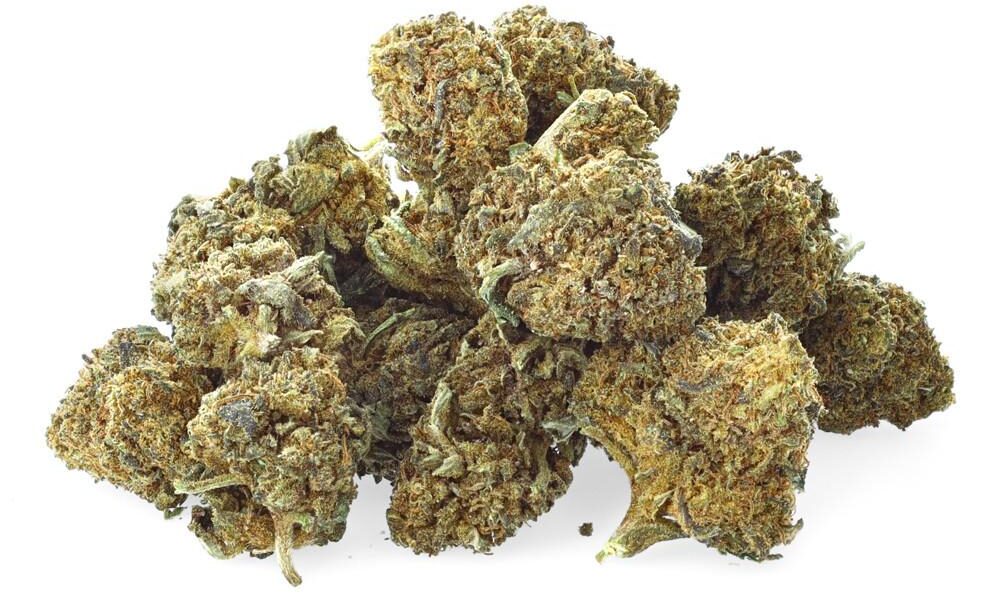Title: The Green Dilemma: Has Anyone Ever Died from Weed?
In a world where the debate over cannabis continues to spark passion and controversy, the question lingers: could the beloved plant we often associate with relaxation and creativity be capable of causing fatal harm? As the legal landscape for marijuana evolves and public perception shifts, the inquiry into its safety remains pressing. While stories of joyous gatherings and personal revelations abound, a darker curiosity prompts us to examine the potential perils of this much-celebrated herb. With a focus on the science, anecdotes, and myth-busting, this article delves into the heart of the matter—has anyone ever truly succumbed to the effects of weed, or is it merely a figment of the collective imagination? Join us as we explore the intricate relationship between marijuana and mortality, seeking clarity in the haze of misinformation and stigma.
Table of Contents
- Exploring the Myths: Cannabis and Fatal Overdoses
- Understanding the Risks: Factors That Contribute to Adverse Reactions
- Legal and Health Perspectives: Evaluating Cannabis Safety
- Recommendations for Responsible Use: Navigating the Cannabis Experience
- Q&A
- To Wrap It Up
Exploring the Myths: Cannabis and Fatal Overdoses
The narrative surrounding cannabis and fatal overdoses is often fogged by misconceptions and exaggerated claims. While it’s common to hear stories of individuals succumbing to the effects of various substances, cannabis stands apart in this conversation. Scientific research has consistently shown that cannabis does not cause fatal overdoses in the traditional sense. This is largely due to the way cannabinoids interact with the body. Unlike opioids or alcohol, cannabis does not depress the respiratory system to a life-threatening extent.
To further illustrate this point, consider the following factors that contribute to cannabis’ safety profile:
- Endocannabinoid System: The body has a complex system that regulates various physiological processes, which cannabis interacts with in a non-lethal manner.
- Dosage Threshold: The amount required to induce severe adverse effects far exceeds practical consumption limits.
- Non-toxic Nature: Cannabis has a high LD50 (lethal dose for 50% of the population), suggesting a low potential for fatal overdose.
| Substance | Typical Fatal Dose (mg/kg) | Likelihood of Overdose |
|---|---|---|
| Opioids | 1-3 | High |
| Alcohol | 5-10 | Moderate |
| Cannabis | Not established | Very low |
Understanding the Risks: Factors That Contribute to Adverse Reactions
The complexities of cannabis consumption can lead to a variety of physiological responses, some of which can be adverse in nature. Several key factors influence the likelihood of experiencing negative reactions to marijuana, including:
- Dosage: The amount consumed significantly impacts the effects. High doses can overwhelm the body, resulting in severe anxiety, paranoia, or hallucinations.
- Method of Consumption: Whether ingested, inhaled, or vaporized, the delivery method alters the onset and intensity of effects, with edibles posing a higher risk of overconsumption.
- Individual Tolerance: Each person’s prior experience with cannabis affects their body’s reaction, making some more susceptible to adverse effects.
- Strain Potency: Different strains exhibit varying levels of THC and CBD, which can impact the likelihood of experiencing negative reactions.
Additionally, the presence of underlying health conditions can exacerbate reactions. Individuals with cardiovascular issues or mental health disorders may face heightened risks when using cannabis. The following table illustrates common health factors that contribute to adverse reactions:
| Health Condition | Potential Risk |
|---|---|
| Heart Disease | Increased heart rate and blood pressure changes. |
| Anxiety Disorders | Potential for worsened anxiety or panic attacks. |
| Psychosis | Risk of triggering psychotic episodes. |
Legal and Health Perspectives: Evaluating Cannabis Safety
The legality and perception of cannabis use have evolved significantly, sparking a critical evaluation of its safety profile. Regulatory bodies around the world have begun to recognize the therapeutic potential of cannabis, yet concerns regarding its safety remain prevalent. Comprehensive studies focus on its health impacts, with findings that often highlight a stark contrast between medical and recreational use. While responsible use under medical guidance can yield considerable benefits—such as pain relief and anxiety reduction—the potential risks are amplified when cannabis is consumed without oversight. Particular attention is paid to dosage, method of consumption, and the profile of users, with certain demographics, including young adults and individuals with pre-existing conditions, facing higher vulnerabilities.
In the context of cannabis-related fatalities, the evidence suggests a stark reality: direct lethal outcomes linked to cannabis consumption are virtually nonexistent. Research indicates that it is nearly impossible to fatally overdose on cannabis in the way one might with substances like opioids or alcohol. However, side effects such as impaired motor skills, anxiety, and paranoia can arise, leading to indirect consequences, particularly in situations involving driving or operating machinery. Below is a summarization of key health findings related to cannabis use:
| Concerns | Effects |
|---|---|
| Impaired Judgment | Increased risk of accidents |
| Psychological Effects | Anxiety, paranoia, hallucinations |
| Dependency Potential | Risk of cannabis use disorder |
While cannabis may not be linked to fatalities directly, it is essential for users to consider safe practices and informed decisions regarding its use. As legal frameworks expand, ongoing research will play a vital role in clarifying the implications of cannabis consumption and enhancing public safety. Ensuring that users are aware of both the therapeutic benefits and potential risks could help mitigate any negative outcomes associated with its recreational or medicinal use.
Recommendations for Responsible Use: Navigating the Cannabis Experience
To ensure a safe and enjoyable experience with cannabis, it’s crucial to approach consumption with mindfulness and awareness. Here are some key recommendations to navigate your cannabis experience responsibly:
- Know Your Limits: Start with a low dose, especially if you’re a beginner. Understand how your body reacts before increasing consumption.
- Choose Quality Products: Purchase cannabis from reputable sources, ensuring that it has been tested for purity and potency.
- Stay Hydrated: Drink plenty of water before and after consumption to help mitigate any potential side effects like dry mouth.
- Be Mindful of Your Environment: Consume in a safe, comfortable space, preferably with trusted friends who can provide support in case of an overwhelming experience.
In addition to personal precautions, it’s essential to educate yourself about the different strains and their effects. Consider the following attributes when selecting a product:
| Strain Type | Common Effects | Ideal Use |
|---|---|---|
| Sativa | Uplifting, Energetic | Daytime Use, Creative Activities |
| Indica | Relaxing, Sleepy | Evening Use, Stress Relief |
| Hybrid | Balanced Effects | Versatile Use, Socializing |
Q&A
Q&A: Has Anyone Ever Died from Weed?
Q1: Can you die from smoking marijuana?
A1: Surprisingly, no direct fatalities have been attributed solely to marijuana consumption. The myth that cannabis is lethally dangerous often stems from its association with other substances or risky behaviors, but studies suggest that marijuana itself doesn’t have a lethal dose comparable to many legal and illegal substances.
Q2: What about health complications?
A2: While marijuana use is generally considered safe for most people, it is not without risks. Individuals with pre-existing health conditions, particularly cardiac issues, may experience complications. However, these instances usually involve a combination of factors rather than marijuana alone being the direct cause of death.
Q3: Are there documented cases of weed-related fatalities?
A3: Yes, albeit indirectly. There have been rare cases where marijuana use has contributed to accidents or risky behaviors leading to fatalities, such as driving under the influence or engaging in dangerous activities while impaired. However, these cases do not implicate marijuana as the sole cause of death.
Q4: Can you overdose on marijuana?
A4: In terms of traditional overdose, marijuana doesn’t work the same way as many other substances. It’s virtually impossible to consume a lethal amount of THC (the psychoactive compound in cannabis), though extreme use can lead to severe discomfort, anxiety, or hallucinations. However, these unpleasant experiences are not typically fatal.
Q5: How do the effects of marijuana differ from those of other substances?
A5: The effects of marijuana, unlike opioids or alcohol, do not primarily depress the central nervous system to a point of respiratory failure. While cannabis can impair judgment and coordination, the physiological effects do not lead to the same life-threatening scenarios seen with other drugs.
Q6: Are there any long-term risks associated with heavy marijuana use?
A6: Long-term heavy use of marijuana can be linked to various health issues, including mental health disorders, respiratory problems (if smoked), and potential cognitive impairments. However, these conditions take time to develop and are not instantaneous causes of death.
Q7: Why do misconceptions about cannabis persist?
A7: The stigma surrounding cannabis usage often arises from historical narratives, societal perceptions, and ongoing debates about legalization. Fear and misinformation can overshadow the factual safety profile of the substance. Education and open dialogue are crucial in dispelling these myths.
Q8: What is the takeaway regarding the safety of marijuana?
A8: Cannabis, while not free from risks, has not been proven to be a direct cause of death on its own. Understanding its effects, context of use, and individual circumstances can provide clearer insights into safely navigating its consumption. Informed choices and moderation remain key.
To Wrap It Up
In the grand tapestry of human experience, the exploration of cannabis as both a plant and a substance has sparked conversations that blend science with culture, caution with curiosity. While the question of whether anyone has ever died from weed beckons with intrigue, the answer reveals itself to be more complex than a simple yes or no.
As we navigate the nuances of individual health, varying laws, and the psychological dimensions of cannabis use, it becomes clear that the impact of this plant is deeply intertwined with personal choices and societal perceptions. The studies often point to a reality where the direct lethality of cannabis remains largely unsubstantiated, even as its effects can vary widely among users.
while the debate continues and the research evolves, the importance of approaching cannabis with an informed and respectful mindset cannot be overstated. Whether enjoyed recreationally or utilized for medicinal purposes, understanding the plant’s potential benefits and risks is vital in fostering a safe environment for discussion and use. So as we bid farewell to this exploration, let us remember: knowledge is the true ally in our quest for understanding, and in the realm of cannabis, that journey is just beginning.



